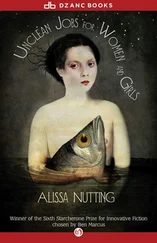Various - Happy Days for Boys and Girls
Здесь есть возможность читать онлайн «Various - Happy Days for Boys and Girls» — ознакомительный отрывок электронной книги совершенно бесплатно, а после прочтения отрывка купить полную версию. В некоторых случаях можно слушать аудио, скачать через торрент в формате fb2 и присутствует краткое содержание. Жанр: foreign_poetry, foreign_children, Детские стихи, на английском языке. Описание произведения, (предисловие) а так же отзывы посетителей доступны на портале библиотеки ЛибКат.
- Название:Happy Days for Boys and Girls
- Автор:
- Жанр:
- Год:неизвестен
- ISBN:нет данных
- Рейтинг книги:5 / 5. Голосов: 1
-
Избранное:Добавить в избранное
- Отзывы:
-
Ваша оценка:
- 100
- 1
- 2
- 3
- 4
- 5
Happy Days for Boys and Girls: краткое содержание, описание и аннотация
Предлагаем к чтению аннотацию, описание, краткое содержание или предисловие (зависит от того, что написал сам автор книги «Happy Days for Boys and Girls»). Если вы не нашли необходимую информацию о книге — напишите в комментариях, мы постараемся отыскать её.
Happy Days for Boys and Girls — читать онлайн ознакомительный отрывок
Ниже представлен текст книги, разбитый по страницам. Система сохранения места последней прочитанной страницы, позволяет с удобством читать онлайн бесплатно книгу «Happy Days for Boys and Girls», без необходимости каждый раз заново искать на чём Вы остановились. Поставьте закладку, и сможете в любой момент перейти на страницу, на которой закончили чтение.
Интервал:
Закладка:
“Mrs. Jones,” said she, hurriedly, “a kind gentleman has given us a new home, and we are going to it to-night, never to come back here to live any more. Our old room, with the rent paid for a year, and all there is in it, I want you to take as a Christmas present from Sweetie; and I wish you a Happy, happy New Year, and please give this to Milly;” and, slipping a five-dollar bill, which Mr. Rogers had given her, into the old woman’s hand, she ran out, and jumped into the carriage. The street lamps blinked at them, like so many stars, as they rolled along, and the boys and Jennie screamed with delight; but Sweetie sat quite still.
James knew where to stop. Sweetie got out first, and ran and unlocked the door of the little corner store. When they were all inside, and before any one had time to ask a question, Sweetie threw her arms about her mother’s neck.
“Mother,” she cried, “Sweetie’s ship’s come in; but it never would have come if it had not been for Mr. Rogers; and it’s brought you this pretty house and shop for your own, and, please God, we’ll all have – ”
“A Merry Christmas and a Happy New Year!” shouted Willie, ending her sentence just as she had ended the story the day before.
“And all the better,” said Fred, who remembered too, “because Christ was born that day.”
Mrs. Lawson, overwhelmed with joy, fainted. She soon recovered, however, though Sweetie insisted on her lying on the soft lounge before the fire, while she set the table. How pretty it looked, with its six purple and white plates, and cups and everything to match! How they did eat! How happy they were!
“Now,” said Mrs. Lawson, when the dishes were washed, and they all sat round the fire, “my little Sweetie, whose patience, and courage, and cheerfulness have kept up the hearts of the rest of us, and proved the ship that has brought us this cargo of comforts, you must tell us your Christmas story before we go to bed.”
So Sweetie told them all Mr. Rogers had said and done for her. They were so excited they sat up very late, and happiness made them sleep so soundly, that they did not wake till the sun was shining brightly into the little shop. People began to come in very early, to make little purchases. One lady bought a whole dollar’s worth of toys, which made them feel as if they were full of business already.
Later in the forenoon, Mr. Rogers sent for Harry and Sweetie to come and help dress his Christmas tree; and Christmas night his parlor was filled with poor children, for each of whom some useful gift hung on the tree. Milly was there by Sweetie’s invitation, and Mr. Rogers sent her home in his carriage, with the easiest chair that money could buy for her old lame mother. The tears filled his eyes as Milly thanked him again and again for all his kindness; and, as he shut the door after the last one, he said, —
“Hereafter I will make it always a Merry Christmas for God’s needy ones.”
I am sure he did, for he had Sweetie always near him. He used to call her his “Christmas Sweeting;” and then she would laugh, and say he was her “Golden Sweeting.”
What is better than gold he gave the family: he found patrons for Mrs. Lawson, and customers for the shop, and placed Harry in a mercantile house, where he soon rose to be head clerk. The other children he put at school. Sweetie he never would let go very far out of his sight. He had her thoroughly and usefully educated, and no less than her mother, and brothers, and sister, did he bless the day when “Sweetie’s ship came in” —
A ship which brought for every day
A welcome hope, an added joy,
A something sweet to do or say,
And hosts of pleasures unalloyed,
Its cargo, made of pleasant cares,
Of daily duties to be done,
Of smiles and laughter, songs and prayers,
The glad, bright life of Happy Ones.
NOTHING TO DO
I HAVE sailed my boat and spun my top,
And handled my last new ball;
I trundled my hoop till I had to stop,
And I swung till got a fall;
I tumbled my books all out of the shelves,
And hunted the pictures through;
I’ve flung them where they may sort themselves,
And now – I have nothing to do.
The tower of Babel I built of blocks
Came down with a crash to the floor;
My train of cars ran over the rocks —
I’ll warrant they’ll run no more;
I have raced with Grip till I’m out of breath;
My slate is broken in two,
So I can’t draw monkeys. I’m tired to death
Because I have nothing to do.
I can see where the boys have gone to fish;
They bothered me, too, to go,
But for fun like that I hadn’t a wish,
For I think it’s mighty “slow”
To sit all day at the end of a rod
For the sake of a minnow or two,
Or to land, at the farthest, an eel on the sod:
I’d rather have nothing to do.
Maria has gone to the woods for flowers,
And Lucy and Rose are away
After berries. I’m sure they’ve been out for hours;
I wonder what makes them stay?
Ned wanted to saddle Brunette for me,
But riding is nothing new;
“I was thinking you’d relish a canter,” said he,
“Because you have nothing to do.”
I wish I was poor Jim Foster’s son,
For he seems so happy and gay,
When his wood is chopped and his work all done,
With his little half hour of play;
He neither has books nor top nor ball,
Yet he’s singing the whole day through;
But then he is never tired at all
Because he has nothing to do.
TWO “GENTLEMEN IN FUR CLOAKS.”
THIS is the name given to the bears in Kamschatka by the Laplanders, who think they will be offended if they are called by their real name; and we may give the same name to the bears in the picture. They are Polar bears, who live in the seas round the North Pole, and fine white fur coats they have of their own. They are white on purpose, so that they may not be seen easily among all the snow and ice in which they live. The head of the Polar bear is very long and flat, the mouth and ears are small in comparison with other bears, the neck is long and thick, and the sole of the foot very large. Perhaps you will wonder how the bear manages to walk on the ice, as nobody is very likely to give him skates or snow-boots. To be sure, he has strong, thick claws, but they would not be of much use – they would only make him slip on the hard ice – but the sole of the foot is covered nearly all over with thick, woolly hair, so the bear walks as safely as old ladies do when they wrap list round their boots.
The Polar bear likes to eat fish, though he will eat roots and berries when he can get no better, and he is a very good swimmer; he can dive, too, and make long leaps in the water. If he wants a boat, he has only to get on a loose piece of ice, and then he can float about at his ease.
This is a full-grown bear, of course. Young bears cannot do all these things; they have to stay with their mothers on shore, where they eat seals and seaweed; the seaweed is their vegetable, I suppose. When the young bears travel and get tired, they get on their mother’s back, and ride there quite safely, whether in the water or on land.
Bears are very fond of their young, and will do anything to defend them. There is a story told of a poor mother-bear and her two cubs which is almost too sad to tell, but it will make us think kindly of the bear, so I will tell it to you.
Years ago a ship which had gone to the North Pole to make discoveries got fixed tight in the ice; one morning, while the ship was still unable to get loose, a man at the lookout gave warning that three bears were coming across the ice toward the ship. The crew had killed a walrus a few days before, and no doubt the bears had smelled it. The flesh of the walrus was roasting in a fire on the ice, and two of the bears ran eagerly to it, dragged out the bits that were not burnt, and began to eat them; they were the cubs, but were almost as large as their mother.
Читать дальшеИнтервал:
Закладка:
Похожие книги на «Happy Days for Boys and Girls»
Представляем Вашему вниманию похожие книги на «Happy Days for Boys and Girls» списком для выбора. Мы отобрали схожую по названию и смыслу литературу в надежде предоставить читателям больше вариантов отыскать новые, интересные, ещё непрочитанные произведения.
Обсуждение, отзывы о книге «Happy Days for Boys and Girls» и просто собственные мнения читателей. Оставьте ваши комментарии, напишите, что Вы думаете о произведении, его смысле или главных героях. Укажите что конкретно понравилось, а что нет, и почему Вы так считаете.












